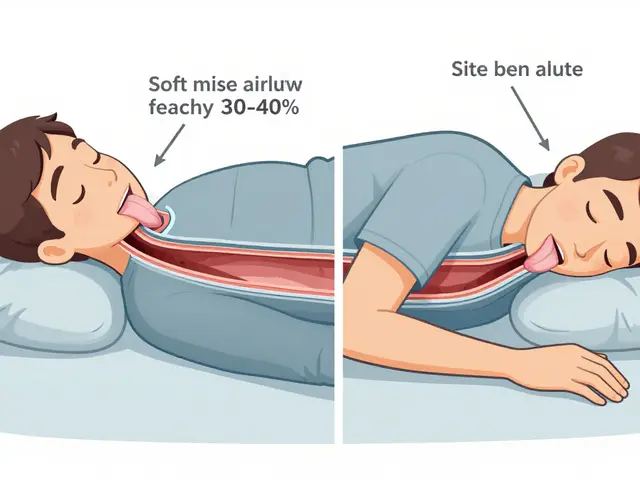Sleep Disorders: Practical Help for Better Sleep
About one-third of adults say they don’t sleep well. If you toss and turn, wake up tired, or fall asleep at odd times, something in your sleep cycle is off. This page explains common sleep disorders, quick things to try tonight, and when you should see a clinician.
Quick Sleep Fixes You Can Try Tonight
Start with your routine. Go to bed and wake up at the same time every day — yes, even weekends. Your body loves a schedule. Make your bedroom cool, dark, and quiet. Use blackout curtains, a fan or white noise app, and keep screens out of the bedroom for at least 30–60 minutes before bed.
Watch caffeine and alcohol. Caffeine can hang around for 6–8 hours, so skip afternoon coffee. Alcohol might help you nod off faster but it fragments sleep later in the night. Short naps (20–30 minutes) can help, but long afternoon naps often make night sleep worse.
Try a simple wind-down: dim lights, calm music, a warm shower, or light stretching. If your mind races, jot down a short to-do list before bed so thoughts aren’t pinging at 2 a.m. Melatonin can help with timing issues like jet lag, but it’s not a long-term cure for chronic insomnia.
When to See a Doctor and Treatment Options
See a clinician if you snore loudly with choking or gasping, fall asleep during daily tasks, have strong leg sensations at night, or still feel exhausted after a full night’s sleep. These signs can point to sleep apnea, narcolepsy, or restless legs syndrome — conditions that need specific treatment.
For insomnia, cognitive behavioral therapy for insomnia (CBT-I) is the top choice. CBT-I teaches practical steps to rebuild sleep patterns and reduce anxiety around sleep. Sleep apnea is often treated with a CPAP machine or, in some cases, a dental device or surgery. Restless legs may respond to iron supplements or certain medications; narcolepsy usually needs stimulant or wake-promoting drugs plus lifestyle changes.
Medications can help short-term, but they carry risks. Prescription sleep medicines or sedating antidepressants should be used under a doctor's guidance. If you’re buying meds online, use a licensed pharmacy and always have a proper prescription. Our site has guides on safe online pharmacies and common medicines if you want more on that topic.
Keep a sleep diary for 1–2 weeks: note bedtime, wake time, naps, caffeine, alcohol, and how you feel each morning. Bring it to your appointment — it gives your clinician a clear picture fast. If a sleep study is recommended, it’s a useful test to diagnose breathing problems, limb movements, or abnormal sleep patterns.
Better sleep usually starts with small changes and clear steps. Try the routine tips tonight, track what happens, and reach out to a healthcare provider if problems keep you drained during the day. Good sleep matters — it affects mood, focus, immune health, and how you feel every single day.





